(Production process / Logistics / Processes in other industrial businesses)
Industrial Engineering and Management (Vocational Certificate Transfer)
Logistics engineering is a science that deals with the design, movement, storage and transportation, development, planning, control, operations research, management and evaluation of the overall system, which covers factors such as people, information, equipment, energy, materials and finance. It is a science that helps in developing the efficiency and productivity of organizations in order to increase the competitiveness of the country.
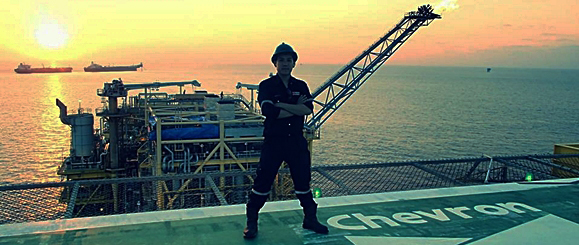
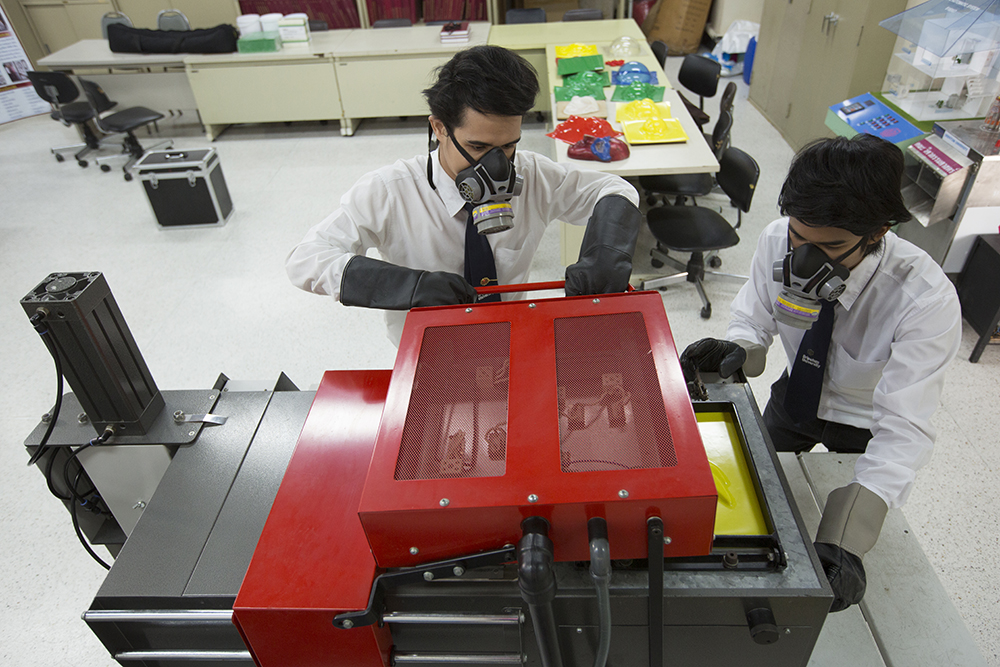

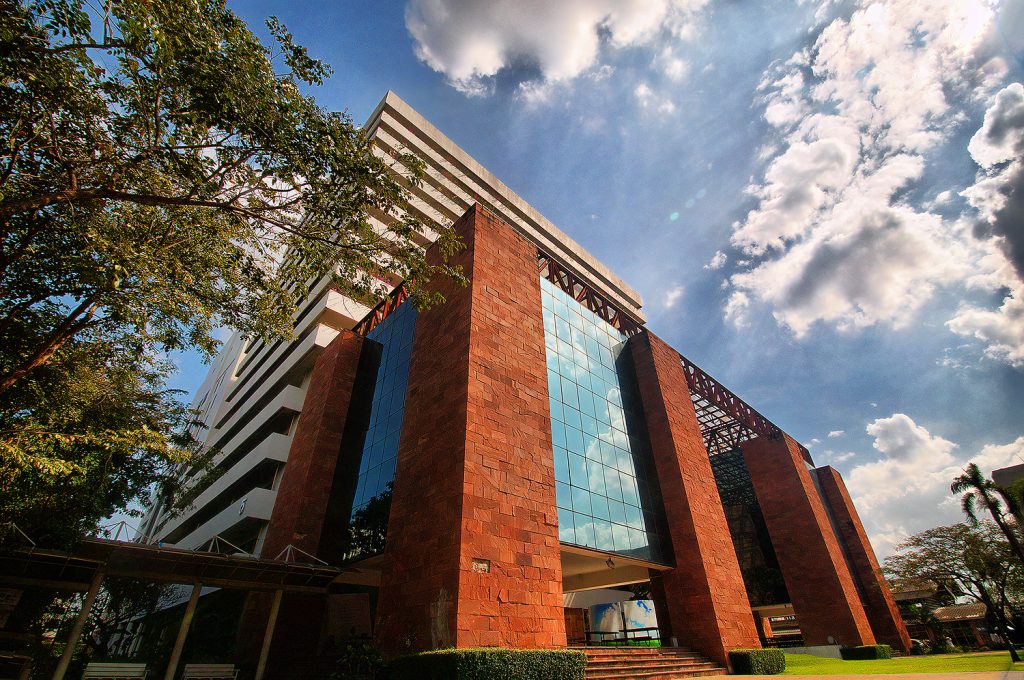
Branch Highlights
“Executive Engineer, Professional Engineering Management”
Those who study industrial engineering will learn the principles of designing and managing various systems such as logistics, warehousing systems, production systems, packaging systems, distribution systems, including importing and exporting goods internationally, as well as the operational processes used in all types of industrial businesses. There is a policy to adjust the educational management process to make learning difficult subjects easy, practical, and learn from real experiences from professional engineers. The content is selected, and the practice is focused on easy understanding. It can be applied to real engineering work from modern laboratories. It responds to modern technology, has industrial networks, and opportunities for real-world training. You can choose to focus on 0 groups of specialized subjects.
 Logistics
Logistics Industrial process
Industrial process
Course Description>> Attachments Course Description for the 2016-2020 Curriculum
Department tuition fees
First semester fee
Industrial Engineering, Vocational Certificate-
Term 1 / 35,900.-
Loan Fund
Industrial Engineering-
High school graduate/Vocational Certificate/NFE graduate
-
Regular semester
Registration Payment
Option 1: Pay by borrowing from the Student Loan Fund, starting at only 4,000 baht. The rest is borrowed from the Student Loan Fund.
Option 2: Pay in full by yourself
Option 3: Pay a portion of 15,000 baht yourself and pay the remaining amount by the date specified by the university.


Course Structure
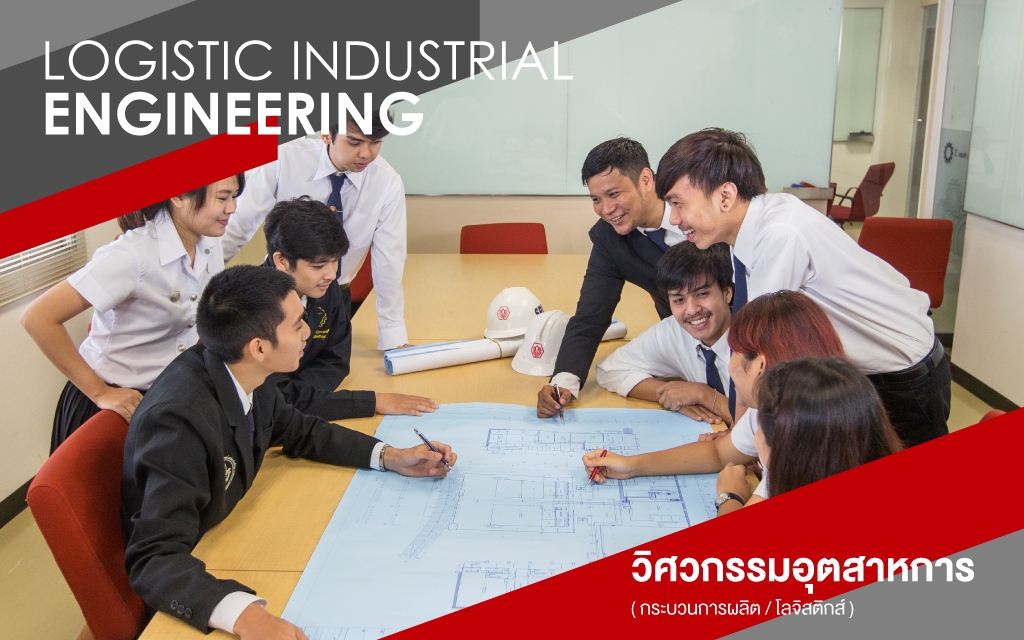
What do you study in industrial engineering?
What is logistics engineering?
Logistics engineering is a science that deals with the design, movement, storage and transportation, development, planning, control, operations research, management and evaluation of the overall system, which covers factors such as people, information, equipment, energy, materials and finance. It is a science that helps in developing the efficiency and productivity of organizations in order to increase the competitiveness of the country.

Logistics Industrial Engineering is a field of study that aims to provide education for graduates to be knowledgeable and skilled in design and control techniques for transportation, storage, movement of goods and services. The study will focus on theory and practice to lead to analysis and research of problems in the industrial sector, including parts related to the supply chain system, so that graduates have knowledge, concepts, principles and application of various techniques that will be used to solve problems effectively, which will result in benefits in management, increase productivity, reduce production costs, and use resources efficiently. In addition to academic and professional knowledge, all graduates will also be trained to have morality, ethics, honesty, perseverance and good human relations as a foundation for their careers.
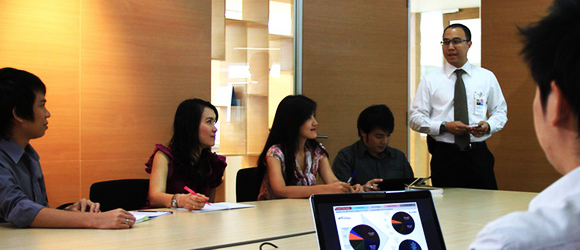
Philosophy of the curriculum
Aim to provide education for graduates to be knowledgeable and skilled in design and control techniques for transportation, storage, movement of goods and services. The education will focus on theory and practice to lead to analysis and research of problems in the industrial sector, including parts related to the supply chain system, so that graduates have knowledge, concepts, principles and application of various techniques that will be used to solve problems effectively, which will result in benefits in management, increase productivity, reduce production costs, and use resources efficiently. In addition to academic and professional knowledge, all graduates will also be trained to be virtuous, ethical, honest, patient and have good human relations as a foundation for their careers.
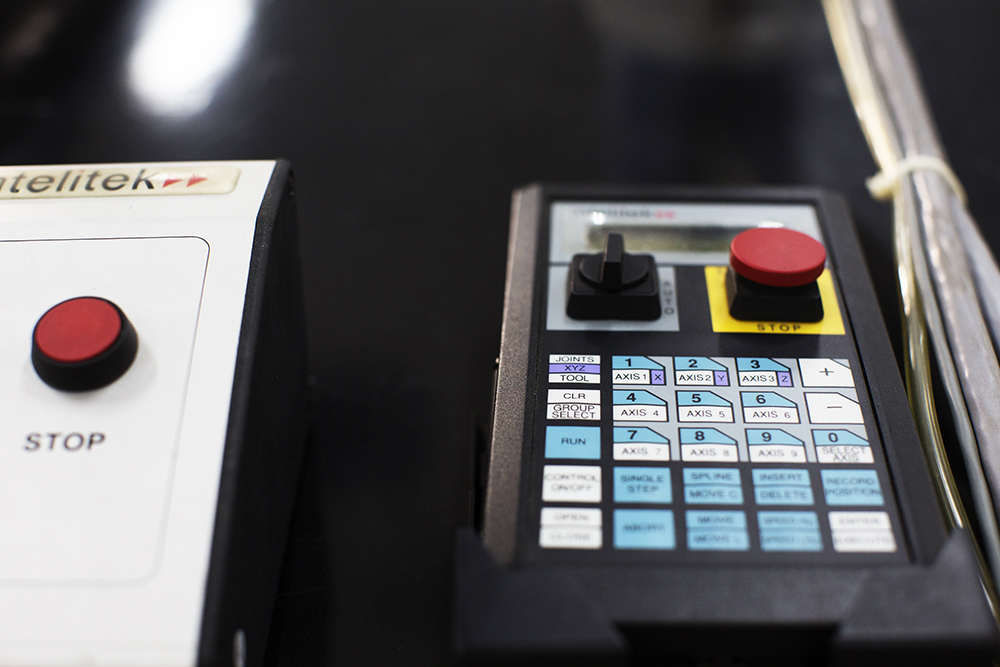
The importance of the curriculum
Currently, both manufacturing and service businesses are facing intense competition. Therefore, businesses must seek new methods or strategies to increase efficiency for the organization or for the sustainable survival of the business organization. Logistics engineering techniques are important tools covering the entire period from the beginning of the business to the development and maintenance of the business’s competitiveness continuously and sustainably. This can be seen from the warehouse system, production system, packaging system, distribution system, planning of transportation systems and networks, as well as the import and export of goods internationally. It combines engineering and management knowledge in the same curriculum with qualifications that meet the standards of bachelor’s degrees in logistics according to the announcement of the Ministry of Education. Sripatum University has a logistics engineering curriculum to support the manufacturing and service industries by using external resources and cooperation with the private sector to support quality graduates through study tours, internships, cooperative education subjects, and inviting highly experienced entrepreneurs to be special lecturers.
Objectives of the course
1. Produce graduates in the field of logistics engineering who have knowledge, understanding and expertise in their profession.
2. Produce graduates in the field of logistics engineering who are capable of self-learning, can think and analyze problems systematically, can perform duties in accordance with professional ethics, have morality and ethics.
3. Produce graduates who are capable of using information technology, language skills, and use technology appropriately to assist in their work.
4. Produce graduates with good human relations, can work with others effectively, have leadership, are able to rely on themselves and be relied on by others, can adapt and develop themselves to a changing environment, produce graduates with academic strength, have the potential to develop research or innovation at a higher level.

Branch of expertise in the field of industrial engineering logistics engineering
The main tasks of logistics industrial engineering
1. Design of transportation systems: water, land and air
2. Selection of process and method of assembly of product parts, selection and design of tools and equipment.
3. Design and layout of factory buildings, layout of machinery and equipment, design of material handling equipment, raw material storage equipment or product storage.
4. Distribution system design or planning and control of product distribution or production services, inventory storage, quality control, factory maintenance and control and other duties related to this area.
5. Development of cost-effectiveness systems such as budget control, cost analysis, establishment of standard cost systems.
6. Improve efficiency in the production process
7. Design and installation of usage value calculation system and engineering analysis system.
8. Design and establish information systems for service provision
9. Development and establishment of incentive wage system
10. Development of performance measurement methods and work standards, including performance measurement and performance evaluation.
11. Development and establishment of job evaluation system
12. Evaluation of reliability and performance
Degree Name
- Thai (Full name): Bachelor of Engineering (Logistics/Industrial Process)
- (Abbreviation) : B.Eng. (Industrial Engineering)
- English (Full name): Bachelor of Engineering (Industrial Engineering)
- (Abbreviation) : B.Eng. (Industrial Engineering)
Duration of study, course
Vocational Certificate Transfer Course 2-3 years (after office hours)
Study outside of office hours, Saturday-Sunday, 9:00 a.m. – 5:00 p.m.
CAREER PATH
Mechanical Engineering
 Engineers in government and private organizations such as wholesale and retail, import and export industries.
Engineers in government and private organizations such as wholesale and retail, import and export industries.
The industries producing oil, automobiles, cement, processed food, etc. Logistics Design, Control, Analysis and Transportation and Service Engineers (LSPs)
Logistics Design, Control, Analysis and Transportation and Service Engineers (LSPs) Material and production planning engineer in the factory
Material and production planning engineer in the factory Warehouse and Distribution Management and System Design Engineer
Warehouse and Distribution Management and System Design Engineer Logistics business operators (transportation, storage, planning, etc.)
Logistics business operators (transportation, storage, planning, etc.) Logistics Engineering Consultant
Logistics Engineering Consultant Researchers and academics in logistics engineering in government and private sectors.
Researchers and academics in logistics engineering in government and private sectors.
Faculty



Review
New things, highlights, differences
Faculty of Engineering, Sripatum University guarantees the quality of success with more than half a century of teaching experience under the concept of “Simply Significant”, an important force driving towards success with cooperation from professional engineering professors who are ready to be an important force in pushing the potential of students to succeed by allowing students to study engineering with deep knowledge! Real knowledge! Real practice! Through the most modern tools and laboratories.
Scholarship
SPU quota scholarship
Good scholarships that don't use TCAS scores No interview, no portfolio submission required
SPU Portfolio 3 Good Scholarship
Port collector line Receive up to 40,000 baht in funding*
Real SPU scholarship
Apply and submit a portfolio 100% free study*




